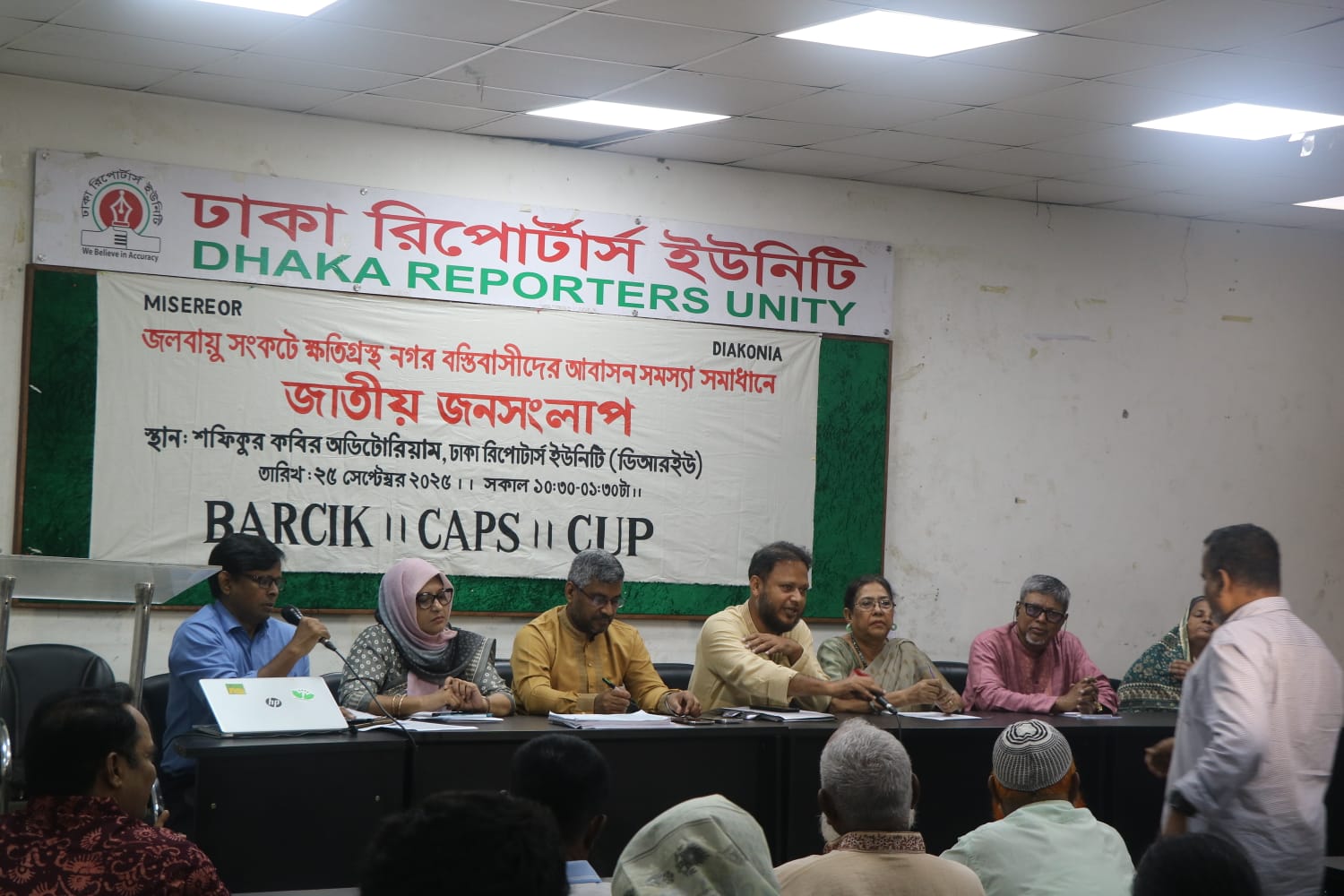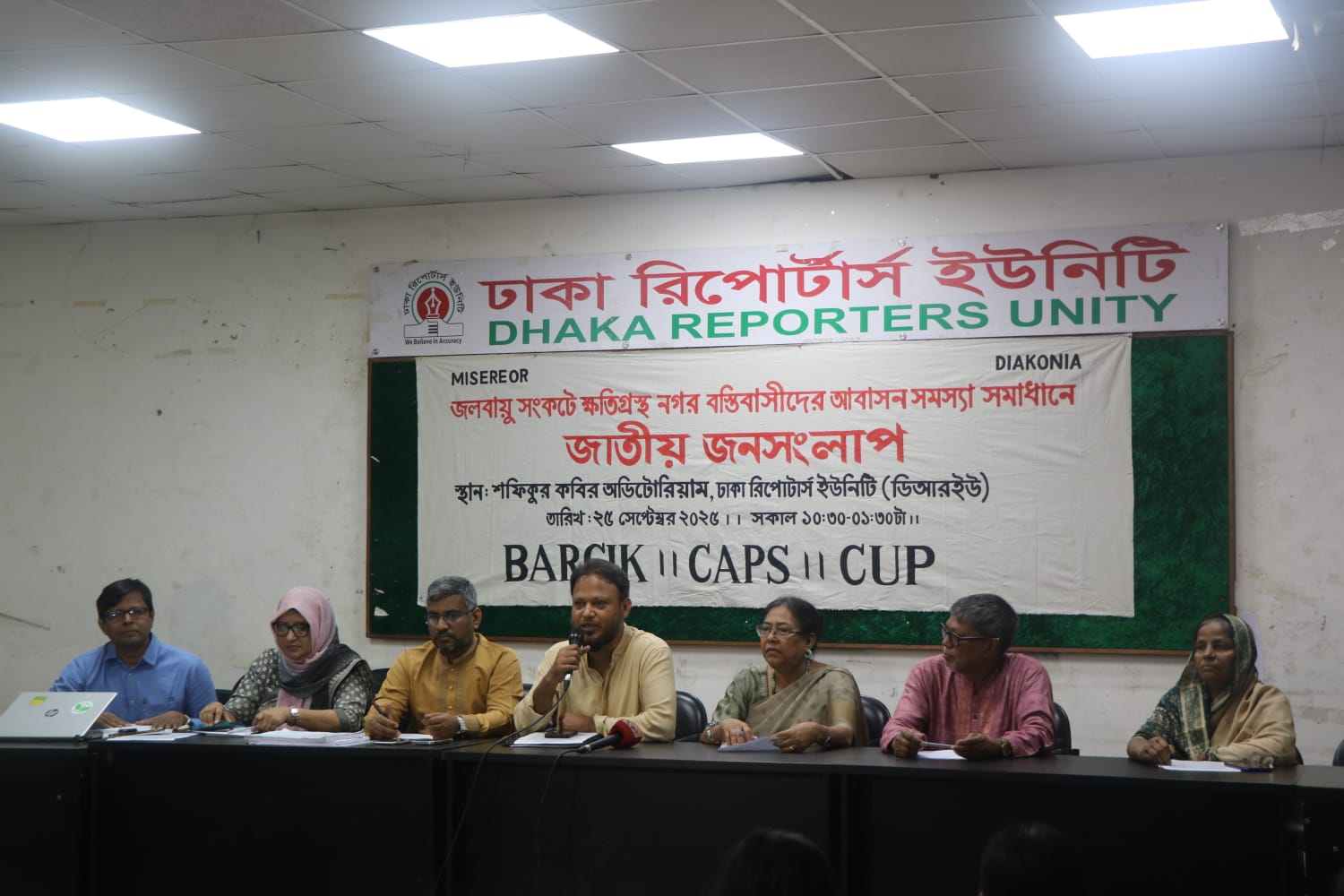By Zahangir Alam from Dhaka
A national dialogue titled “Addressing Housing Problems of Urban Slum Dwellers Affected by the Climate Crisis” was held today at the Shafikur Kabir Auditorium of Dhaka Reporters Unity, jointly organized by the Bangladesh Resource Centre for Indigenous Knowledge (BARCIK), Centre for Atmospheric Pollution Studies (CAPS), and the Coalition for the Urban Poor (CUP).
The event was presided over by CUP’s Executive Director Rebeca San-Yat. Professor Adil Mohammad Khan, President of the Bangladesh Institute of Planners (BIP), attended as the chief guest. Special guests included Professor Md. Shahidul Islam, Chairman of the Department of Geography and Environment, University of Dhaka; Advocate Mahbubul Alam, Founder of the Centre for Policy Affairs; Professor Dr. Ahmad Kamruzzaman Majumder, Chairman of CAPS; Gaus Piari, Director of WBB Trust; Hosne Ara Begum Rafeza, President of Slum Dwellers Rights Protection Committee; Syed Ali Biswas, Director of BARCIK; and ABM Touhidul Alam, among others.

Speaking as the chief guest, Professor Adil Mohammad Khan said that although the government has formed several reform committees and taken new decisions, it has never consulted slum dwellers about their problems. This is an injustice. “The government must allocate at least 20% of every housing project for urban slum dwellers,” he stressed.
Professor Md. Shahidul Islam of Dhaka University said inequality in society is natural to some extent but becomes harmful when excessive. “Metro Rail was built, but slum dwellers cannot benefit because of high fares. Development plans should be inclusive so that all residents of the city can benefit,” he added.
Professor Dr. Ahmad Kamruzzaman Majumder of CAPS remarked, “Dhaka has become a city of pollution, and survival here is extremely difficult. Still, no one wants to leave. For a livable city, green spaces, parks, and gardens are essential.”
Gaus Piari of WBB Trust said their initiative is to form area-based committees to raise awareness among slum dwellers. “Before the upcoming elections, they must tell candidates that votes will only be given if proper housing for slum residents is ensured,” she added.
Voicing their concerns, slum representatives also shared their experiences. Mehrunnesa from Mirpur-6 said despite repeated discussions, the government continues to ignore their plight while their hardships increase daily. Harunur Rashid, a leader from Hazaribagh, said, “During the July Movement, more slum dwellers lost their lives than others, yet no steps were taken by the government for us.”

Asma, a youth representative from Mirpur-7, described the dire living conditions during the recent monsoon: “Rainwater entered most of our homes, damaging everything. At night we cannot sleep due to heat, and diseases like fever, cough, rashes, body aches, and dengue are our constant companions.”
Earlier, the concept paper of the event was presented by Shaheda Azbela Purna, Associate Coordinator of BARCIK, while Jahangir Alam, BARCIK’s Urban Researcher and Coordinator, moderated the session.
